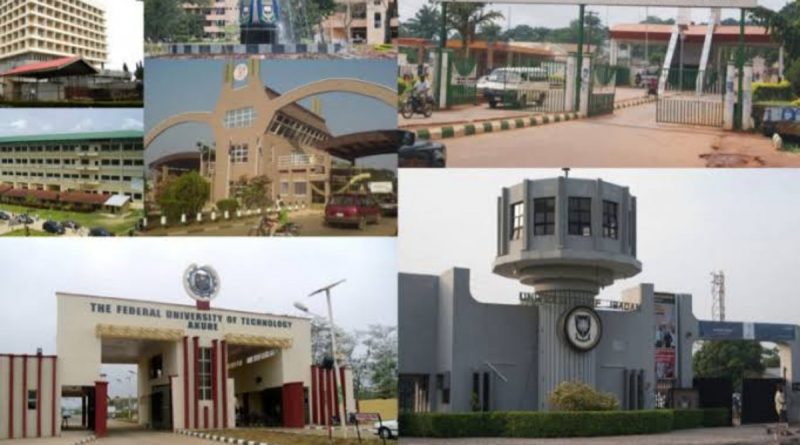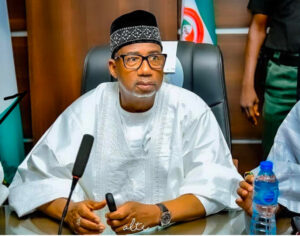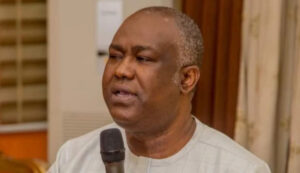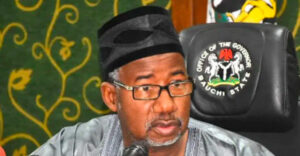The education sector in Nigeria is facing a significant crisis as public universities are being overwhelmed by soaring electricity bills. According to the Academic Staff Union of Universities (ASUU), many institutions are on the brink of collapse, unable to sustain basic operations due to the high cost of electricity.
During a two-day national conference held in Abuja, ASUU President Prof. Emmanuel Osodeke gave a bleak update on the financial state of Nigerian universities. He revealed that some universities receive monthly electricity bills ranging between N200 million and N300 million. This alarming figure is a stark contrast to the meager N15 million the federal government provides to these institutions each month to cover all operational costs, including electricity, fuel, diesel, and laboratory maintenance.
Prof. Osodeke didn’t mince words as he criticized the government for its misplaced priorities. He pointed out the absurdity of the situation where an individual Senator receives N21 million monthly, while entire universities, responsible for educating thousands of students and supporting research, are struggling to survive on N15 million. He stated, “A government that will give just N15 million for UNILAG to run will, in turn, give one Senator N21 million a month. The government gives a system N15 million, but an individual gets N21 million. That’s where our priority is.”
The problem of high electricity costs has been building up over time, but it has now reached a critical point where universities are finding it nearly impossible to maintain their day-to-day operations. These institutions rely heavily on electricity to power research labs, classrooms, and administrative offices. With electricity bills running into hundreds of millions of naira monthly, universities are forced to make tough decisions about which services to cut or reduce.
Universities also need diesel to power generators, as Nigeria’s national grid is unreliable. This further adds to their expenses, as diesel prices fluctuate and increase costs even more. Prof. Osodeke highlighted that universities have no choice but to spend heavily on fuel, which strains their already limited budgets.
ASUU has long argued that the federal government has consistently underfunded universities, leaving them unable to perform at a level that matches global standards. The N15 million provided monthly by the government is supposed to cover all operational costs, including utilities, maintenance, and staff wages. However, this amount falls far short of what is needed, particularly as electricity costs alone consume a large portion of these funds.
This financial burden is made worse by the fact that other key sectors of university life—such as infrastructure, research, and student services—are severely underfunded as well. Laboratories that should be used for research and innovation often lack basic equipment, and even where the equipment exists, unreliable electricity makes it hard to use them effectively.
One of the most striking points Prof. Osodeke made was the glaring disparity between the amount of money allocated to universities and the enormous pay packages enjoyed by government officials. The fact that a single Senator earns more than the entire monthly budget of a major university illustrates the government’s misplaced priorities. This reflects a broader issue in the country’s political and economic systems, where sectors critical to national development, like education, are neglected while the political elite continue to enjoy massive financial privileges.
If the electricity cost crisis is not addressed soon, the consequences could be dire for Nigeria’s higher education system. Universities may be forced to close down parts of their campuses or drastically cut services that are essential to student learning and research. This could lead to a reduction in the quality of education, affecting students’ ability to learn in an environment with limited resources and frequent power outages. In the long run, this could negatively impact Nigeria’s overall development, as a weakened educational system would mean fewer skilled professionals to drive growth in various sectors.
ASUU has made it clear that it is time for the government to reassess its priorities and allocate more funding to universities. They argue that education is the foundation of a nation’s progress, and without proper support for higher education, Nigeria’s future is at risk. The union has consistently called for better salaries for academic staff, improved infrastructure, and sufficient operational funding, including to cover soaring electricity costs.
Without prompt and decisive action, the collapse of public universities could become a reality, and the consequences for the nation’s youth and future workforce would be devastating.







